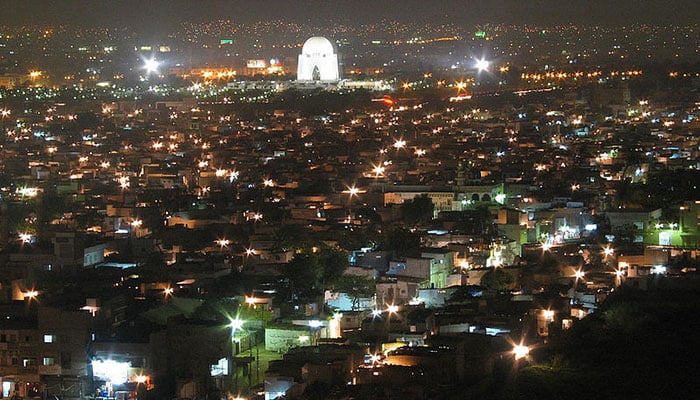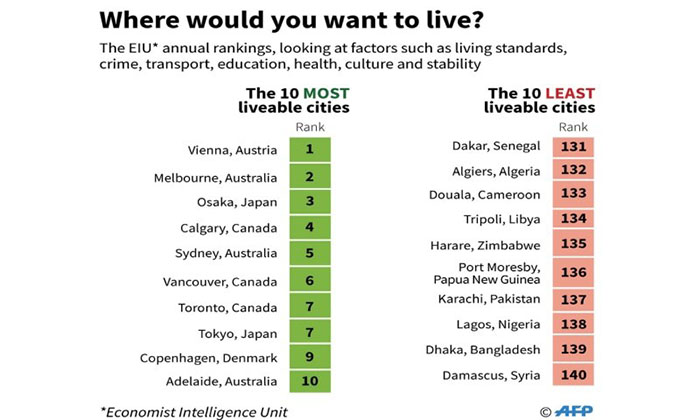Karachi among world’s least liveable cities: survey
August 15, 2018

KARACHI: The provincial capital of Sindh and Pakistan’s commercial hub, Karachi has been ranked among the world’s least liveable cities by the Economist Intelligence Unit (EIU), which is the research analysis unit of the Economist Group.
The annual EIU rankings consider factors such as stability, healthcare, education, infrastructure, culture and environment.
Karachi ranked near the bottom of this year’s list coming in at 137 out of 140 cities. The city only managed to fare better than Lagos in Nigeria (138), Dhaka in Bangladesh (139) and Damascus in Syria (140).
The survey states that terrorism and civil war played a strong role in determining the worst performing cities.
The EIU survey states that rankings of cities like Damascus, Karachi and Tripoli suggest that conflict is responsible for many of the lowest scores. “This is not only because stability indicators have the highest single scores but also because factors defining stability can spread to have an adverse effect on other categories,” researchers said in the report.
Karachi received a 40.9 out of an overall 100 rating. In stability, the city received 20, 45.8 in health care, 66.7 in education, 51.8 in infrastructure and 38.7 in culture and environment.
According to the survey, the Middle East, Africa and Asia account for the ten lowest-scoring cities.

Vienna ranked most liveable
Austria's capital Vienna has beaten Melbourne to be ranked the "world's most liveable city”, ending the southern Australian city's seven-year reign. It is the first time a European metropolis has topped the annual chart compiled by the EIU.
Vienna scored a "near-ideal" 99.1, beating Melbourne into second place on 98.4. Japan's Osaka took third place.
Australia and Canada dominated the top ten, each boasting three cities. Australia had Melbourne, Sydney (fifth) and Adelaide (10th) while Canada had Calgary (fourth), Vancouver (sixth) and Toronto (joint seventh).
"Those that score best tend to be mid-sized cities in wealthier countries," researchers said in their report.
They noted that several cities in the top 10 had relatively low population densities which fostered "a range of recreational activities without leading to high crime levels or overburdened infrastructure".
Australia and Canada, researchers said, have an overall average population density of 3.2 and four people per square kilometre respectively, compared to a global average of 58.
Japan, which alongside Osaka boasted Tokyo in the top ten (joint seventh), is the glaring exception to that rule with a nationwide average of 347 people per square kilometre but its cities are still famed for their transport networks and living standards.
Copenhagen was the only other European city in the top ten at ninth place.
Researchers said wealthy financial capitals such as Paris (19th), London (48th) and New York (57th) tended to be "victims of their own success" with higher crime rates and overstretched infrastructure dampening their appeal.
The survey also looked at cities where long-term improvements had been made. Abidjan, Hanoi, Belgrade and Tehran saw the largest improvements in liveability over the last five years -- more than five percentage points.
Ukraine's Kiev, the capital of a European country wracked by political violence, civil war and the loss of Crimea to Russia, saw the largest drop in its liveability over the last five years (-12.6 percent).
Puerto Rico's San Juan -- which was devastated by a hurricane last year -- as well as Damascus and Caracas also saw steep drops over the same period.












